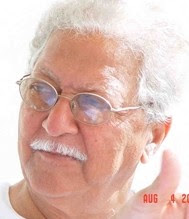sexta-feira, 6 de julho de 2007
About the article on Cape Verde (Sunday edition, June 24,2007)
Any society, as far as medium exposure is concerned, is exposable from a negative perspective, and we, Cape Verdeans are not exempt from that. Fortunately we have had and continue to have enough positive, some of them very positive, exposures, in the media to make up for that kind of liability.The Cape Verdeans in general have been traditionally raised in family environments and educated according to cultural and moral ( which includes, of course, the religious) patterns and values that make of us what we are . And I am talking about the mainstay of the Cape Verdean traditional society, based on the family upbringing and on what has been taught in our schools.But let us face the facts. A lot of things have changed and continue to change in the Cape Verdean society, both at home and in the Diaspora communities. Instead of reacting oversensitively, we should take stock and go on struggling, as we have always done to preserve and fight for our values and for our dignity as a people. At home or in the Diaspora we are a nation. That is why we call ourselves Cape Verdeans, or Cabo-vedianos, wherever we are, and that is why the other nations have learnt to call us Cape Verdeans. For good or for bad. In Cape Verde we survive planting corn, beans, sweet potato, squash and sugar cane. But weeds are part of what grows in our lands. We have to know how to manage our crops. We have learned to do many things to overcome our difficulties . Maybe we can learn how to turn weeds into useful crops.No single country owns the world ( the planet). It is our world. And it is more and more One World.The article in the New York Times about Cape Verde and the Cape Verdeans gives us a one-sided picture of Cape Verde, no matter how true the facts that have been exposed are. But it is just one side of our reality. Let us not be condescending about the negative aspects of our society. Let us not blind ourselves about what is happening in many respects both in Cape Verde and in the Cape Verdean immigrant communities and the interaction between the two sides of our reality. Instead, let us go on struggling for the so many reasons and goals that encourage us to fight.
Subscrever:
Enviar feedback (Atom)




Sem comentários:
Enviar um comentário